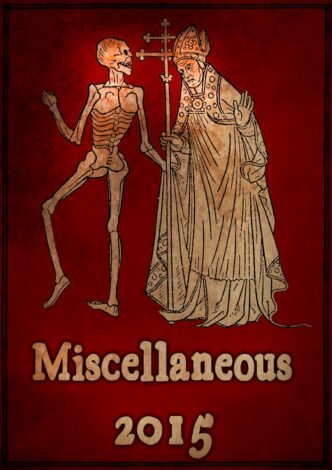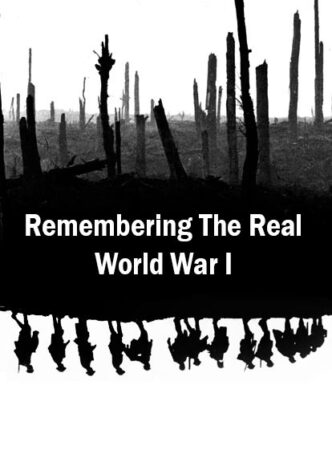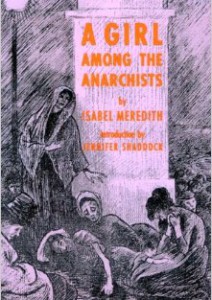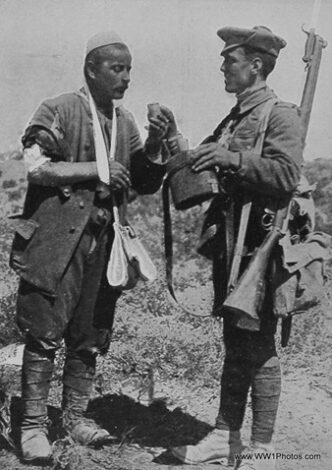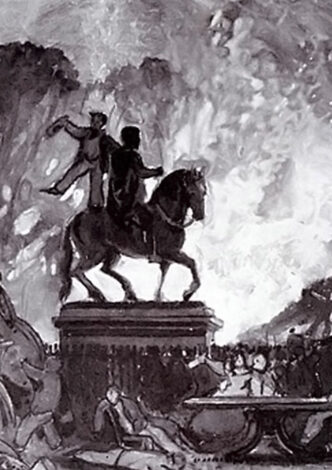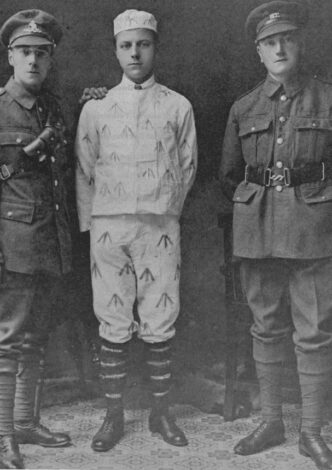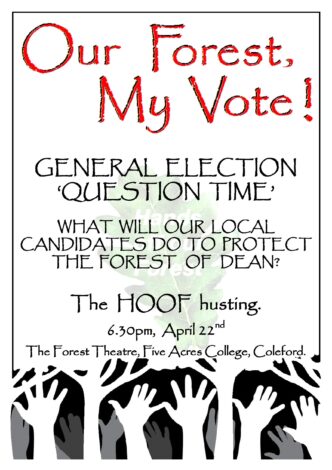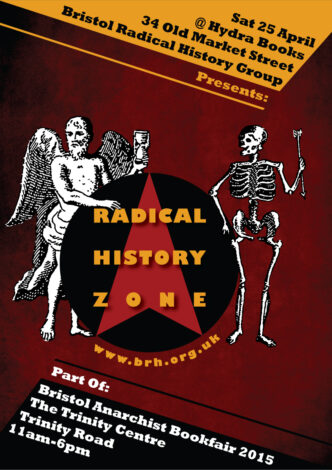A talk followed by a tour at Bath City Farm. To celebrate the 20th Anniversary of Bath City farm, come and hear author Sephen E. Hunt talk about the history of city farms. Street Farm was a part of the trend towards 'green' thinking during the 1970s and built the first ecological house. They had close links to the urban farming movement. email alexia@bathcityfarm.co.uk to book.
One hundred years ago, on July 15, 1915, two hundred thousand Welsh miners launched a strike for higher pay. Their coal was powering the Royal Navy in the midst of a world war. The miners defied the coalowners, the government, the law, the king and their own leaders. Why? And what lessons, if any, can be learnt for today? Robert Griffiths is a labour historian and currently General Secretary of the Communist Party.
From its advent as a modern worldview anarchism was always too pure a faith to be properly judged by the conduct of its adherents and practitioners. Or so it would seem from A Girl Among the Anarchists, one of several novels that lifts the lid on that simmering cauldron that was the Victorian anarchist scene. First published in 1903, the University of Nebraska deemed this rare book of the belle epoch worthy of reprinting in 1992. The fact that it was written by insiders is the virtue that sets […]
The horses, the horses, we couldn't get the horses off the beach; we should not have been there A British veteran of Gallipoli In the Autumn of 1914 a number of men from Bristol were recruited into the 7th Battalion Gloucestershire Regiment. They spent the winter in billets in Basingstoke and then moved to Aldershot in February 1915 for final training. They sailed from Avonmouth on 19 June landing at Alexandria, then moving to Mudros on 4 July to prepare for a landing at a place called […]
I was fortunate enough to acquire, among a collection of books, both the 1884 and the considerably expanded 1906 edition of Arrowsmith’s Dictionary of Bristol, edited by Henry J. Spear and J. W. Arrowsmith. Concurrent with other research I have been conducting into the Bristol riots of 1831 I perused the entry in each edition and was struck by the volume of revisions. It should initially be noted that the account given in the 1906 edition is substantially longer. As such it is perhaps the detail […]
From 1916-19 many men & women in Bristol organised opposition to conscription. Dozens of Bristolians were imprisoned as conscientious objectors. These included Walter Ayles, who was a city councillor and Bristol's most prominent opponent of World War 1; the three Reinge brothers from Totterdown who were all imprisoned for refusing to join the army; George Barker who hid fugitives in the cellar of his bicycle shop in Bedminster; the Whiteford brothers from St George, one of whom refused to […]
This film is to be premièred on a big screen at Our Forest My Vote (The Hoof Husting) at Forest Theatre, Five Acres college, at 6.30pm on Wed April 22. It will be followed by a Question Time-style debate with the audience, HOOF and parliamentary candidates, asking what will they do to protect our Forest of Dean? Entry: voluntary donation (suggested £1). hoofelection2015.wordpress.com/. Film set to music from Dick Brice, Max, Forest of Dean Brass, Asha Faria-Vare, Billy Bragg & Heathens All, […]
Tracing Movements is a collection of films documenting struggles against immigration controls in Europe. At RHZ, we will be screening two films: Patra, Dead End relates the campaigns to stop the destruction of migrant camps in the port-town of Patra, Greece. Today, migrants continue to live in limbo, with no chance of gaining in Greece, and stopped from continuing their westward journey. Across the Adriatic in the fields of southern Italy, seasonal migrant workers live segregated from Italian […]
Published in 2012, All Knees and Elbows critically surveys tendencies which sought to uncover the agency of ‘ordinary’ people in challenging capitalism and developing different forms of social organisation. All Knees and Elbows engages the work of a number of British and international left historians and groups, including Silvia Federici, History Workshop, Eric Hobsbawm, C.L.R James, Peter Linebaugh, Sheila Rowbotham, Jacques Rancière and E.P. Thompson. Anthony Iles and Tom Roberts will […]
Members of our very own Bristol Radical History Group will share some choice snippets from their research as an appetiser to promote two new publications, including the group’s first book-length collaboration. Strikers, Hobblers and Conchies is published by Breviary Stuff. Watch this talk
